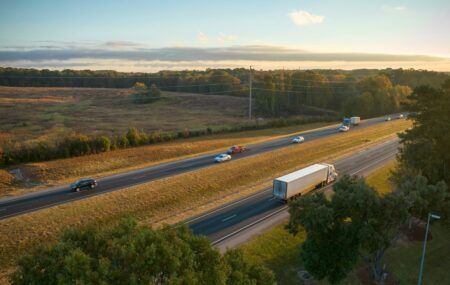The US Department of Transportation (USDOT) has announced that it is establishing a new advisory committee focused on automation across a number of modes.
The new Federal Committee on Automation, which includes leading professionals and experts in their field, will hold its first meeting on January 16, to immediately begin work on some of the most pressing and relevant matters currently facing the transportation industry, including the development and deployment of automated vehicles, and determining the needs of the Department as it continues with its relevant research, policy, and regulations.
As technology develops, automation may play a larger role in a number of modes of transportation, including cars, buses, trains, planes, and UAV (unmanned aerial vehicle) or drone systems. The new committee will play a critical role in sharing best practices, challenges, and opportunities in automation, and will open lines of communication so stakeholders can learn and adapt, based on feedback from each other.
As found in the USDOT’s final Beyond Traffic 2045 report about the future of transportation, the country’s population is expected to grow by 70 million people in the next three decades, and the country is also expected to face an increase of more than 40% in freight volume. The agency says the new committee will play a needed role in helping the USA prepare for its infrastructure needs in the coming years.
“During my time at the Department, we have fostered some of the most significant technological changes to ever take place in transportation, and we did so while keeping our focus on the safety of the American people,” said US Transportation Secretary Anthony Foxx. “This new automation committee will work to advance life-saving innovations, while boosting our economy, and making our transportation network more fair, reliable, and efficient.”
The committee members are:
Co-Chair: Mary Barra – chairman and CEO, General Motors;
Co-Chair: Eric Garcetti – Mayor of Los Angeles;
Vice Chair: Dr J Chris Gerdes – professor of engineering, Stanford University;
Gloria Boyland – corporate VP of operations and services, FedEx;
Robin Chase – co-founder of Zipcar, Buzzcar, and Veniam;
Douglas Chey – SVP of systems development, Hyperloop One;
Henry Claypool – director, Community Living Policy Center;
Mick Cornett – Mayor of Oklahoma City;
Mary ‘Missy’ Cummings – director of humans and autonomy lab, Duke University;
Dean Garfield – president and CEO, Information Technology Industry Council;
Mary Gustanski – VP of engineering, Delphi Automotive;
Debbie Hersman – president and CEO, National Safety Council;
Rachel Holt – regional general manager USA and Canada, Uber;
Lisa Jackson – VP of environment, policy, and social initiatives, Apple;
Tim Kentley-Klay – co-founder and CEO, Zoox;
John Krafcik – CEO, Waymo;
Gerry Murphy – senior corporate counsel aviation, Amazon;
Robert Reich – professor of public policy, University of California at Berkeley;
Keller Rinaudo – CEO, Zipline International;
Chris Spear – president and CEO, American Trucking Association (ATA);
Chesley Sullenberger – founder and CEO, Safety Reliability Methods Inc;
Bryant Walker Smith – assistant professor, University of South Carolina;
Jack Weekes – operations VP, State Farm Insurance;
Ed Wytkind – president, Transportation Trades Department, AFL-CIO
John Zimmer – co-founder and president, Lyft.




